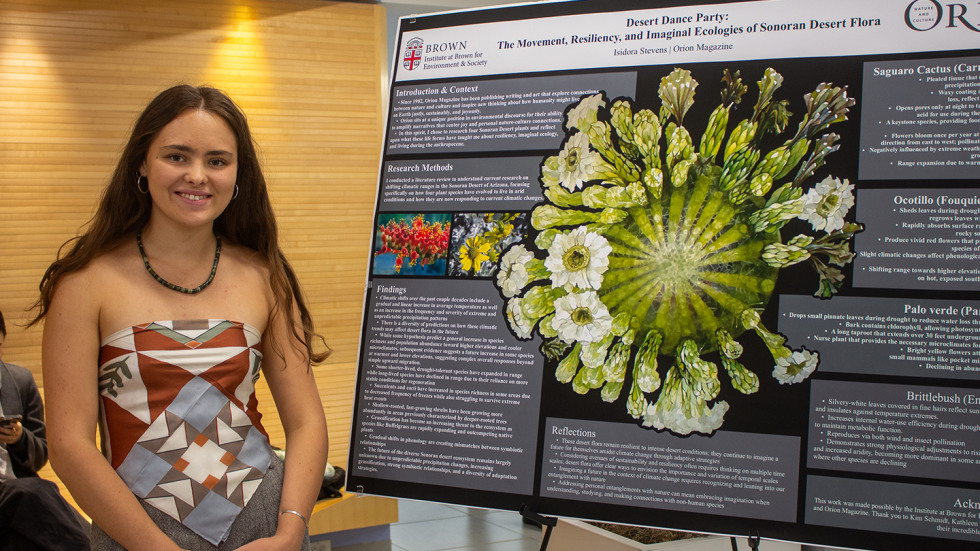WATCH | “Subjects of the Sun”: Rethinking solar justice with Myles Lennon
During an October 18 book talk, Assistant Professor Myles Lennon challenged audiences to see solar energy as not only a climate solution, but a reflection of deeper social and economic inequities.
Can solar power deliver justice as well as energy? This was the central question asked by Myles Lennon, Dean’s Assistant Professor of Environment and Society and Anthropology, during a recent Family Weekend conversation about his new book “Subjects of the Sun: Solar Energy in the Shadows of Racial Capitalism,” moderated by Bathsheba Demuth, Dean’s Associate Professor of Environment and Society and History.
Drawing from ethnographic research with clean-energy companies and community solar campaigns in New York City, Lennon argued that renewable technologies—while vital to decarbonization—often remain entangled in the very systems of extraction and inequity they seek to replace.
IBES Family Weekend Book Talk
Drawing from ethnographic research in New York City, Lennon calls for an equitable energy transition that centers communities and lived experience.
Seeing solar through new lenses
Lennon illustrated how the public often experiences solar energy not through direct contact, but through screens and data (such as PowerPoint slides, Google Earth renderings, and spreadsheets), creating an illusion that solar is inherently “natural” or just. This digital distance, he noted, can obscure the labor and environmental costs embedded in solar supply chains.
“ The point here is not that solar is good or bad, but rather that renewable energy can simultaneously redress and re-entrench unjust fossil-fueled structures of power. ”
In a discussion with Demuth and audience members, Lennon reflected on climate urgency, cautioning against equating timelines or carbon targets with justice itself. “In addition to doing the large-scale decarbonization work, we also need to completely redefine our orientation to our environments, the ways that we steward and care for the sacred life on this planet,” he urged.

The talk concluded with a lively Q&A and a poster session highlighting research by five Environmental Sciences and Studies concentrators. Here, Isidora Stevens presents her work: "Desert Dance Party: The Movement, Resiliency, and Imaginal Ecologies of Sonoran Desert Flora."